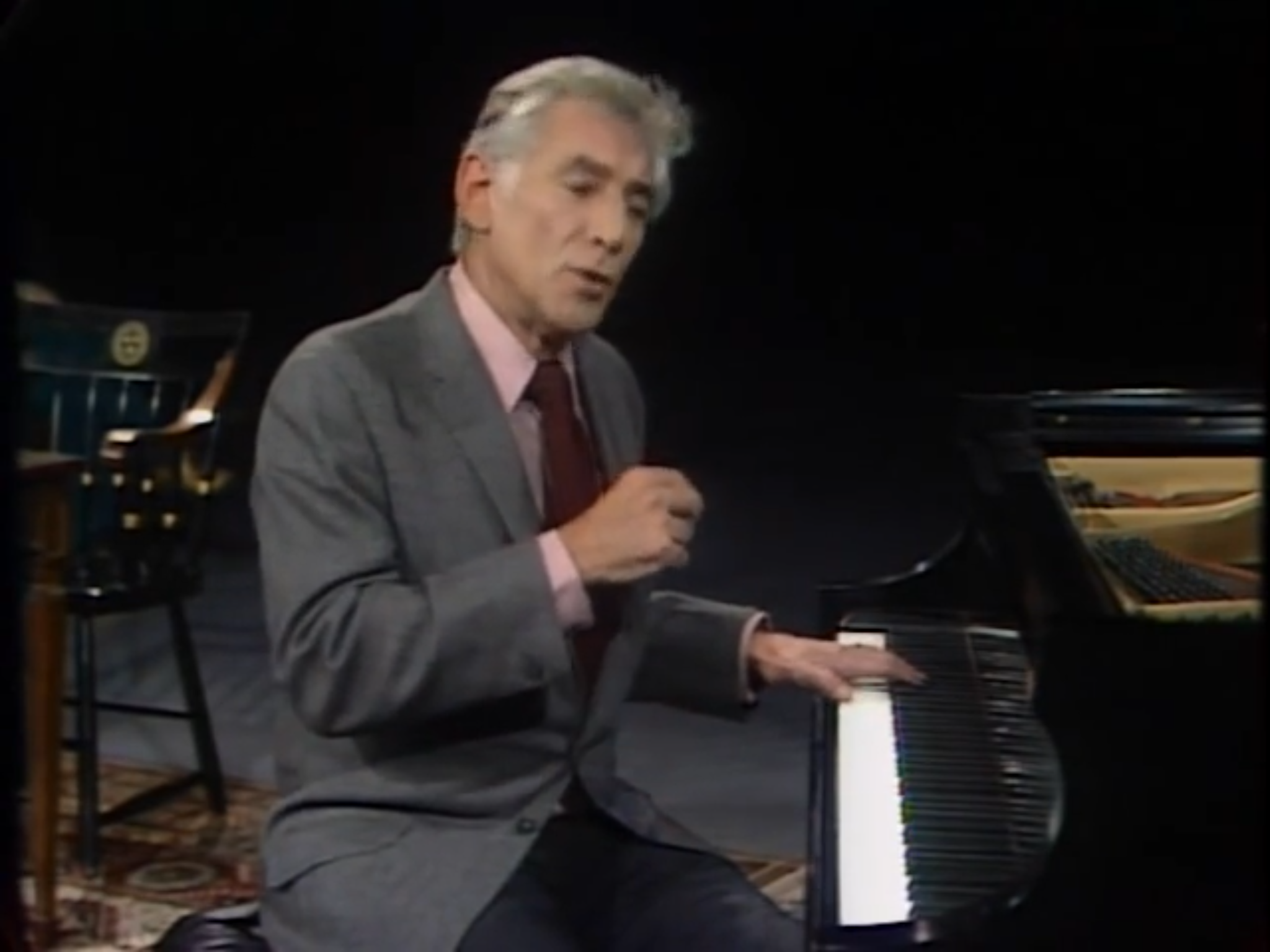Leonard Bernstein's Norton Lecture Series of 1973 has played a critical role in helping to define a particular landscape of thought which might be best described by Bernstein’s own (admittedly nonacademic) term, "musico-linguistics". While not a formal discipline, the term characterizes and encompasses the body of thought upon which he speculates in six multi-hour lectures at Harvard. The lectures themselves do not represent rigorous scholarship; however, due to their enormous cultural influence via nationwide broadcast, I argue that Bernstein’s perspective as portrayed in The Unanswered Question: Six Talks at Harvard went on nonetheless to become a meme that has served to inspire, direct and at times outright define a course of scholarship for many researchers across a diverse range of disciplines. This work continues to yield fruitful discoveries in areas such as the study of recursion.
However, it almost immediately began to make an impact in the work of serious researchers who envisioned the melding of "Chomskian” linguistics with so-called music theory into a new and more purely scientific theory of music. A crucial line of research developed. “As a result of these [Norton] lectures, many people in the Boston area took a fresh interest in the idea of an alliance between music theory and linguistics...” Inspired in part by the series, Professors David Epstein and Irving Singer (one of the few linguists specifically credited by Bernstein, but only in the Author’s Note prefacing the six lecture transcripts) offered a one- week seminar at the Massachusetts Institute of Technology in the fall of 1974 studying linguistics, music, and aesthetics.
